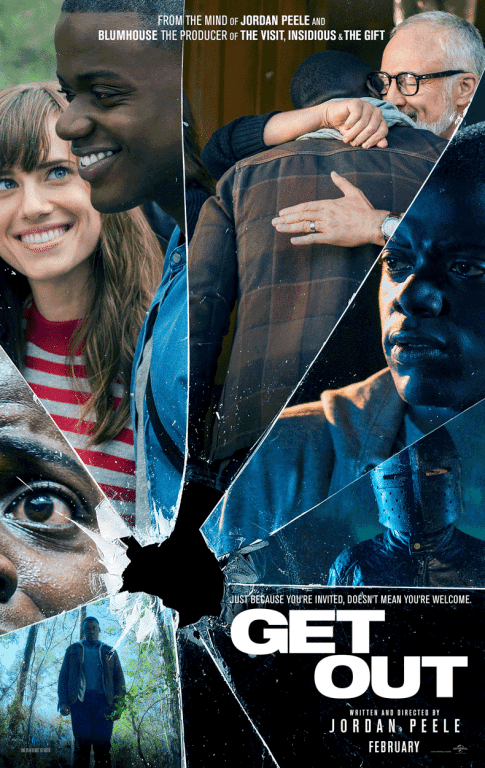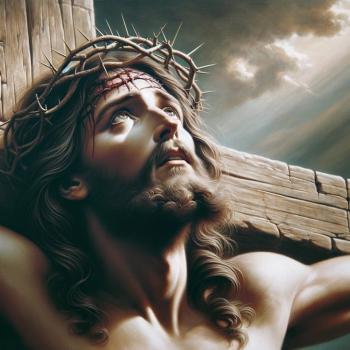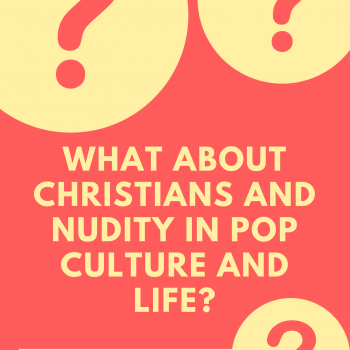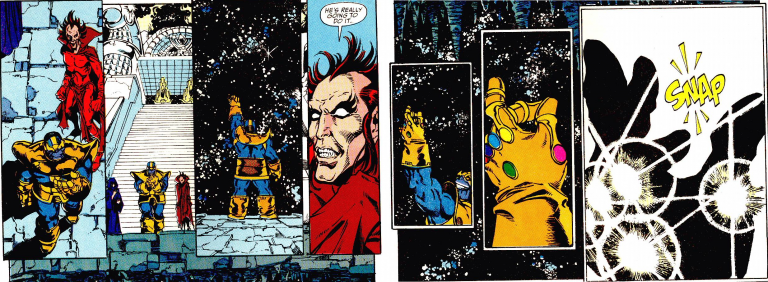This piece is written as a companion to episode 1 of The Pop Culture Coram Deo Podcast and, like that episode, contains numerous spoilers. Read on at your own discretion. You can watch Get Out on Amazon.
Get Out’s Broken World
One of the few points of agreement between Christians and their non-believing neighbors is that our world is broken, that things are not as they should be. This common perspective on the state of the world is at the heart of Jordan Peele’s masterfully crafted Get Out and, to some degree I think, explains why audiences were so readily able to connect with the story (and connect they did, to the tune of $175 Million in box office sales[1]). The feature of our broken world that Get Out most pointedly identifies is the animosity between men and the tribes they come from, most specifically the alienation experienced by the black community as a result of a societal imbalance of power in favor of white people.[2]
As already mentioned, Peele has created a masterpiece of narrative in Get Out and his display of themes about race are presented with a jeweler’s eye for detail. At the largest level we have the appropriation of black culture carried out by the Armitage family and their cult in the ghoulish, sci-fi metaphor that forms the heart of the visceral horror of the film (and, I must note, one that removes the agency of the black victims in a way that calls back to American chattel slavery). Much closer to the real-world capabilities (and, sadly, practice) of sinners is the real threat Chris feels when he considers the possibility of going to visit his white girlfriend’s parents. Will they reject him and, in doing so, deny what Christians know to be the inherent dignity he holds as an image bearer of the Creator? More subtly, Peele also presents Chris as threatened by micro-agressions (like the highlighted comment of Mr. Armitage, in an attempt to build camaraderie with Chris, that he would have been glad to vote in President Obama for a third term).
This more subtle level of racism also sets the stage for our understanding of Peele’s aims. A dinner scene in the middle of the film shows Chris along with the Armitage parents, his girlfriend Rose, and her brother Jeremy. Jeremy, having a few drinks in him, begins to comment on Chris’ genetic potential as an athlete. Chris notes that his sport is basketball but Peele doesn’t present Chris as an athlete, he presents the character as an artist with a gifted eye for photography. It is Chris’ camera through which he captures the world as it is and, in-story, also breaks the spell cast over the Armitage’s black captives. In much the same way, Peele as an artist uses his camera in an attempt to display the broken world he sees and lift the stupor that veils black oppression as a societal status quo.
An Inadequate Solution
The solution, then, to the brokenness of a world slumbering in callous disregard of the ways society is stacked in favor of white people and against black people according to Peele’s narrative is for the individual (and his community) to awaken and remain alert to social dynamics and persist in the struggle against this broken social norm. Peele presents this answer in the title of his film but also regularly throughout the story – perhaps never so skillfully as in the second scene of the film, the one which introduce us to Chris, Rose, and the life they have built together in their city. This introductory scene in Chris’ apartment is supposed to be idyllic – we’re introduced to their hip apartment and Chris’ art. While he shaves Rose is out picking up pastries; they greet with a kiss at the door. However, as this sequence is playing out we hear Childish Gambino’s “Redbone” and the last thing you hear before Chris opens the door to greet Rose is the admonition to “stay woke”, signaling that even in what appears to be the best of possible relationships with a white person the black person needs to stay alert for danger. As the film progresses – and Chris’ circumstances grow ever darker – Chris, although he becomes desperate to flee, never gives up in his struggle against his white oppressors and, in fact, subverts their power by using their means of oppression against them: he picks cotton to place in his ears to escape the hypnotic trigger and, in the physical struggle against the brother who evaluated him as an athlete, wins their physical competition by outsmarting him.
In Peele’s Get Out the closest thing to ultimate truth we have is this struggle between competing ethnic groups and the need to continue in the struggle. Thus we aren’t surprised to find that this struggle can only end in violence and even bloodshed. The end of the film makes clear that there can be no reconciliation between the factions; it is either Rose or Chris and one must die in order for the other (and their way of life) to survive. In this way Get Out is deeply dystopian and cynical – even as the audience is left rightly celebrating Chris’ survival.
Get Out is a film of skillful sophistication, both in narrative and craft, that rewards multiple careful viewings. The film is also provocative and asks its viewers to consider a world they may have never known exists, at least potentially but also likely according to Peele, immediately around them. To call it a commercial success is to engage in laughable understatement. Yet for all those strengths it is also a deeply inadequate film. Doing so well to tell a story that accurately reflects our broken world and the animosity felt (and expressed) by men against their fellow men Get Out fails in giving us only the resources of personal ingenuity and communal social awareness wedded to persistence in the struggle as a solution.
This Broken World Needs the Church
The world of Get Out cries out for the church but knows nothing of her. The hostility of man toward fellow man, of brother against brother, is as old as the first generation to come out of the Garden. God’s gracious solution is to provide men a transcendent identity in His Son that comprehends the various ethnic and social backgrounds from which men and women arise[3] but one which also shows those backgrounds are not ultimate.[4] To look at the church is to see men and women, Jew and Greek, slave and free but, also, is to find there no Jew or Greek, male or female, Washington or Armitage in the final sense. And in the church God ends, ultimately, hostility between Creator and Creature and through that reconciliation ends hostility between brothers. Get Out, then, only takes us part of the way. It is the even greater story of the gospel that gathers us up, from every tribe and tongue, and gives us real reconciliation around the throne of King Jesus, united in a common song of His glory, expressing our even-more-real identity as adopted members of His Father’s house.
Jeff Wright pastors Midway Baptist Church in Cookeville, TN and a host of The Pop Culture Coram Deo Podcast. You can find him on Twitter @wrightjeff and his blog at jeffwright.exaltchrist.com.
Find Out How to Connect with The Pop Culture Coram Deo on Social Media Here!
Want to read more from Pop Culture Coram Deo covering movies contending for Oscar wins? Check out our Oscars tag!
You can subscribe to The Pop Culture Coram Deo Podcast on iTunes or stream via TuneIn!
Find Out How to Connect with The Pop Culture Coram Deo on Social Media Here!
[1] http://www.boxofficemojo.com/movies/?id=blumhouse2.htm
[2] “Even though Peele finely threads that needle to avoid divisiveness, the film still cleverly subverts movie tropes that have been rampant in cinema — particularly the “white savior.” Peele cites Kevin Costner in Hidden Figures and Brad Pitt in 12 Years A Slave, saying that although he liked those movies, he points out that the role of those characters is to speak to white audience members saying, “Hey! This is you!” as a form of reassurance to remind them that they aren’t racist. With the character of Rose (Allison Williams), the audience expects to see her come out as the white savior to save Chris, but Peele made a bold move to not have that happen. He points out that there is this trend in race-driven movies where the last good white person can’t be racist, like Costner and Pitt. “Rose subverts that,” said Peele. He takes a beat and jokes, “Sometimes all white people are evil — sometimes — but not all the time.” – http://deadline.com/2017/10/jordan-peele-get-out-film-independent-forum-keynote-speaker-diversity-inclusion-1202192699/
[3] Revelation 21:23-26
[4] Galatians 3:28
















